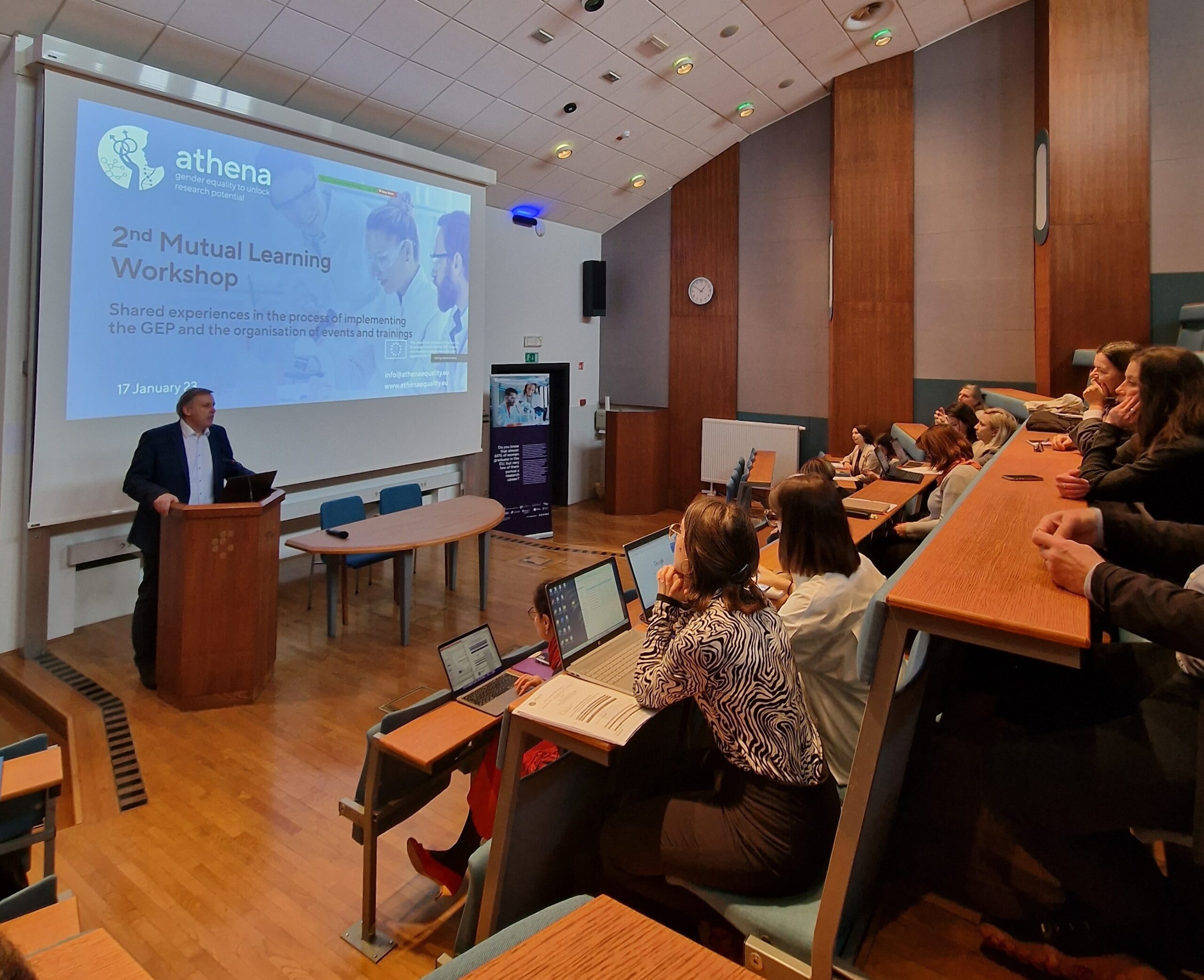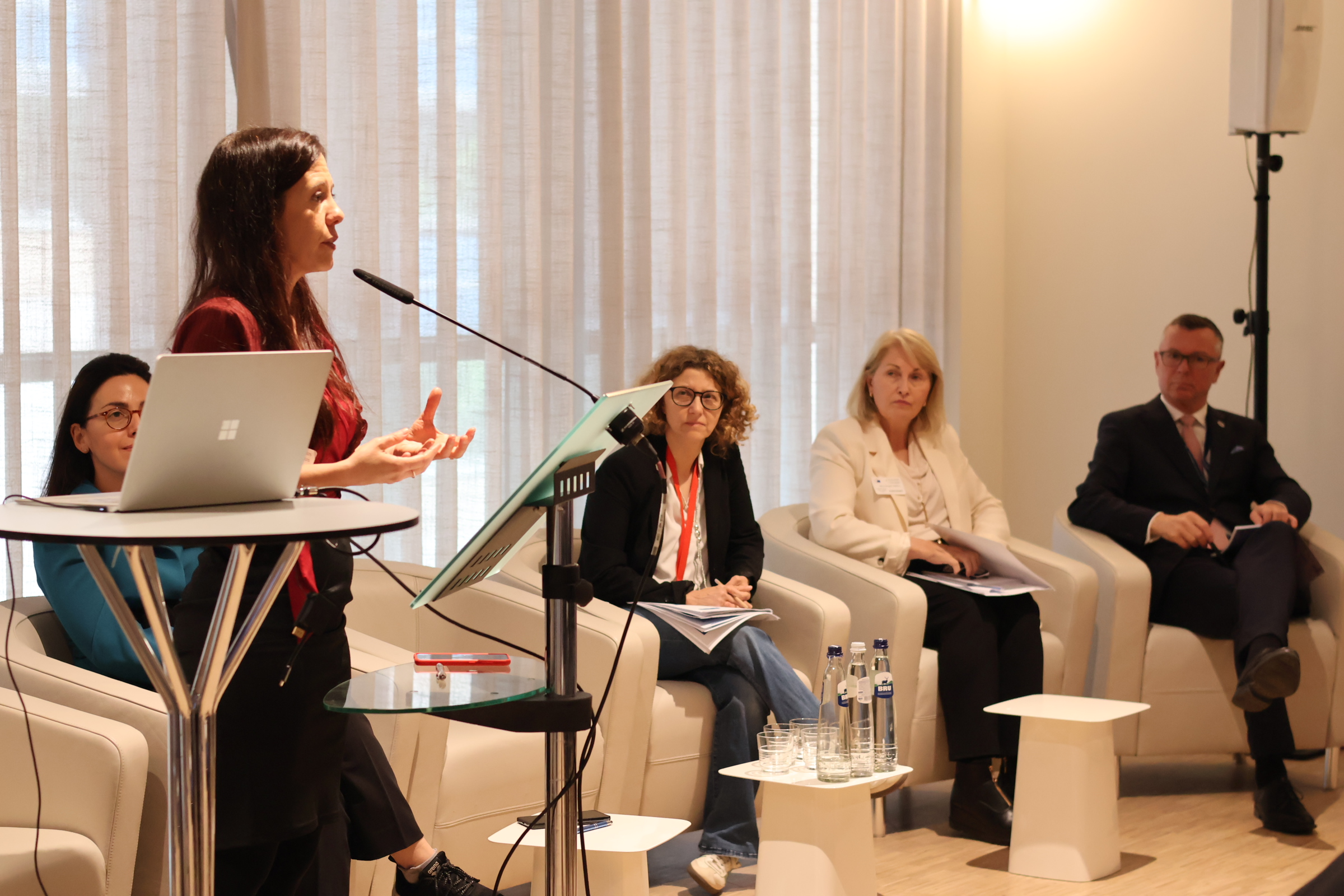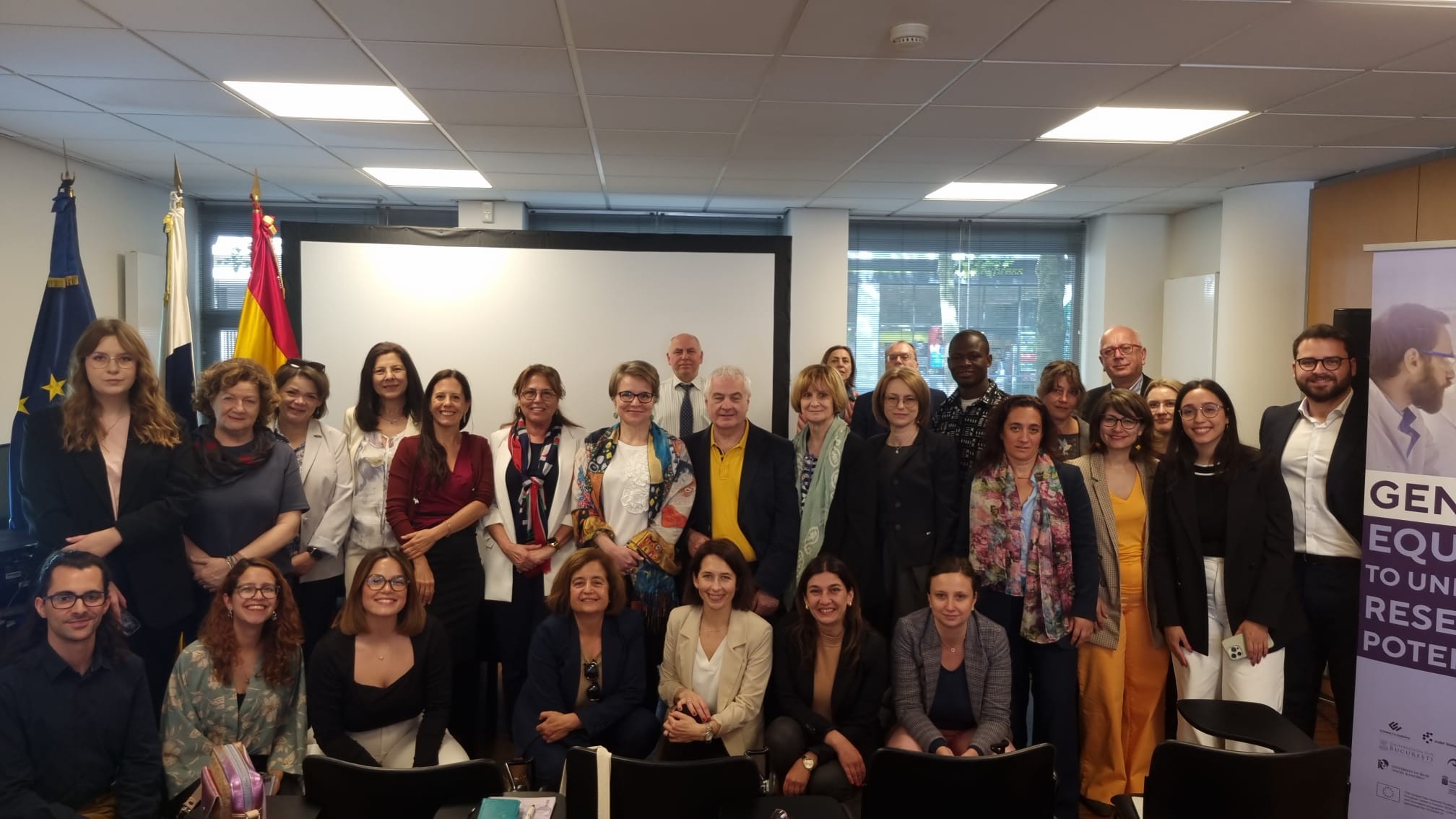
The 2nd Mutual Learning Workshop was held at the Jožef Stefan Institute, in Ljubljana

The second Mutual Learning Workshop (MLW) was held online and in person at the Jožef Stefan Institute, in Ljubljana, on January 17, 2023. The topic was “Shared experiences in the process of implementing the GEP and the organisation of events and trainings”.
The MLW was designed for Gender Equality Plan Implementation Committee members and project partners to share and learn from the experiences of each ATHENA institution in the process of implementing their customized GEPs. The purpose of the exercise was to learn about the primary challenges and how to overcome them, as well as the key considerations for the next phase of GEP implementation, monitoring, and evaluation, and key aspects to consider when planning future events.
The ATHENA institutions that are implementing their GEPs were invited to give a presentation on the institutionalization of gender equality, implementation of the GEP, the members involved, the key challenges and milestones to be highlighted, monitoring and evaluation, and dissemination of the GEP. In addition, project partners were expected to discuss the main difficulties encountered during the organisation of the local events and trainings, as well as the lessons learned.
Prof. Boštjan Zalar, director of the Jožef Stefan Institute, and Romana Jordan, assistant director for EU Affairs, opened the event and Marlene Santacruz, member of the project coordination team at Consulta Europa, presented the ATHENA project’s progress. Then, each institution involved in the project gave a 15-minute presentation detailing how its institution is implementing the GEP. Gabriela Langhammerová, an external expert from the Centre for Gender and Science (NKC), also participated in the event and presented strategies and best practices for implementing the GEP.
During the workshop’s joint discussion, the following most pertinent conclusions emerged:
- Data collection is difficult because there is frequently no data or no access to data, especially data that is disaggregated by gender. It is also challenging to collect this type of data when it is not binary because there are no systems designed to store such information. Another reason for this difficulty is that organisations are occasionally unwilling to share their data and are extremely protective of it, as legal institutions do not require this information.
- Every institution should allocate both financial and human resources to the GEP implementation, as its implementation is demanding, time-consuming and challenging.
- It is key that the highest management roles at the institutions get directly involved in the implementation of the GEP and in GE topics. Further strategies will be developed to encourage participation and understanding of GE at an institutional level.
- The organisation of events is one of the greatest obstacles, as it is essential to attract more participants. Consequently, it was emphasized how crucial it is to organise regional events that bring together a greater number of stakeholders.
- Raising awareness, promoting dissemination actions, and evaluating the targets are the highest priorities to combat people’s lack of interest in participating in these events.
- It is crucial to improve internal organisation and align actions with available time.
The MLW video recording is available:



![[PRESS RELEASE] ATHENA Hosts High-Level Discussions on Gender Equality in European Research](https://www.athenaequality.eu/wp-content/uploads/2025/03/PRESS-RELEASE-1.jpg)












